A friend harshly accuses you of wrongdoing that you are certain you never did. You try to defend yourself but to no avail.
Your teenage daughter comes downstairs dressed and ready for a family reunion in an outfit that you do not deem modest or appropriate in any sense of the word.
Your son’s math grades need improvement. You are certain that he needs a solid hour of tutoring each day after school, but alas, he refuses the lessons.
Can you feel the tension in your body? PerhapsCan you feel the tension in your body? it presents itself as a tight knot in your stomach. Maybe you feel it in your back. A racing heart? Neck and shoulders are where my stress goes.
Now hold onto that feeling for just a moment. I know it’s uncomfortable. But allow yourself to feel the tension, pressure, frustration, and/or anxiety that interactions like the above-mentioned tend to trigger.
At such a time, we find ourselves in panic mode. The issue before us feels like an emergency. And so, we react by doing whatever we feel will eliminate the issue as fast as possible.
But that can be quite problematic.
It would be like shooting a barking dog (G‑d forbid) to eliminate the noise that’s bothering you. No dog, no noise. Terrible idea obviously. The dog is barking for a reason. It may be as simple as the fact that he’s hungry or as important as alerting you to a burglar about to break into your home.
But in panic mode, you can’t see that. The nature of panic mode is such that it hyper-focuses us on the most obvious and immediate problem, often blinding us to the subtle yet deeply important messages that the problem signals.
The way to combat this: Harness the powerful energy of the mind.
The foundational book of Chassidic philosophy, the Tanya, strives to move us away from “emergency mode” and into moach shalit al halev mode. Allow me to explain: Moach shalit al halev is the premise that what makes us uniquely human is the fact that our moach (mind) has the ability to control our lev —the emotions in our heart.
Let’s go back to the friend who wrongly accuses you. Your heart tells you to REACT. To do whatever it takes and as quickly as possible to remove the trigger of your pain. That probably means continuing to defend yourself despite your friend’s refusal to believe you—and having the relationship go south as a result.
Our mind on the other hand sends us a very different message. RESPOND. The thesaurus may list react and respond as synonyms, but in truth, they are worlds apart.
The moach (mind) does not react; it responds. It recognizes the challenging emotions for what they are; it is not in denial. But instead of jumping and acting on those difficult emotions, it helps the heart breathe through the discomfort. Once it has reduced the anxiety level, it tries to see past the most obvious source of threat in search of the bigger picture. For the subtle messages at play.
Perhaps your friend is hurt. After all, as my mom says: “Hurt (adjective) people hurt (verb) people.” Your friend’s need to falsely accuse you may stem from her own personal hurt and pain about issues that have absolutely nothing to do with you; she used you as the dumping grounds. And so, this may mean responding with a heart-to-heart talk over coffee about what she’s going through in her personal life. Or it might mean that she is in too hurt and toxic a place right now for you to engage with her. But whatever solution you arrive at, it is from the perspective of responding versus reacting.
And then there’s your daughter marching downstairs in immodest attire. To react is to tell her to go right back upstairs and change outfits, despite her protests. To respond is to contemplate where the desire to act and dress in a refined manner stems from. You may arrive at an “Inspired Relationship with G‑d and One’s Soul” as your answer. Which would mean that imposing and forcing will probably lead to anything but inspiration.
Perhaps you’ll have better luck with working on yourself internally to be a model of an inspired relationship with G‑d. Perhaps a heart-to-heart talk with your teen about what it means to be in a relationship (one that’s chosen and not forced); how to apply that to our relationship with G‑d; how to appreciate the holiness and refinement of our G‑dly soul; and how that appreciation will manifest itself in action, dress and speech. Too esoteric for a teenager? Try it. But only if it’s coming from an authentic place within you. It’s been personally tried and tested. With incredible results, thank G‑d.
As for your son’s math grades, you mayWe have the best tool possible right in our back pocket discover that he’s been experiencing incredible pressure and feelings of anxiety about his abilities at school each day. Six hours a week of after-school math tutoring feels like another boatload of pressure to him. He may need a little less math tutoring, even if his grades aren’t as ideal as you’d like. The peace of mind and self-confidence he’ll gain through relaxed time playing with friends after school instead may just prove to be of greater benefit to his overall health and future success in life.
The G‑dly force within us responds. The base, animalistic force within us reacts. They are competing forces within us for as long as we live on this Earth. And the animalistic reactions come naturally and instinctively; we need to work a little harder for the G‑dly responses.
But we have the best tool possible right in our back pocket: Torah! Study it and internalize its teachings. Illuminate it with chassidut, the inner dimension of Torah. This fuels and energizes the G‑dly soul so that we may hear its call and feel its light on a conscious level.
Slowly, but surely, we begin to live from a more elevated space.
And the stronger and brighter the G‑dly soul, the greater its power to harness mind over matter. In all our relationships: with ourselves, with others and with G‑d.








Most enlightening- thank you